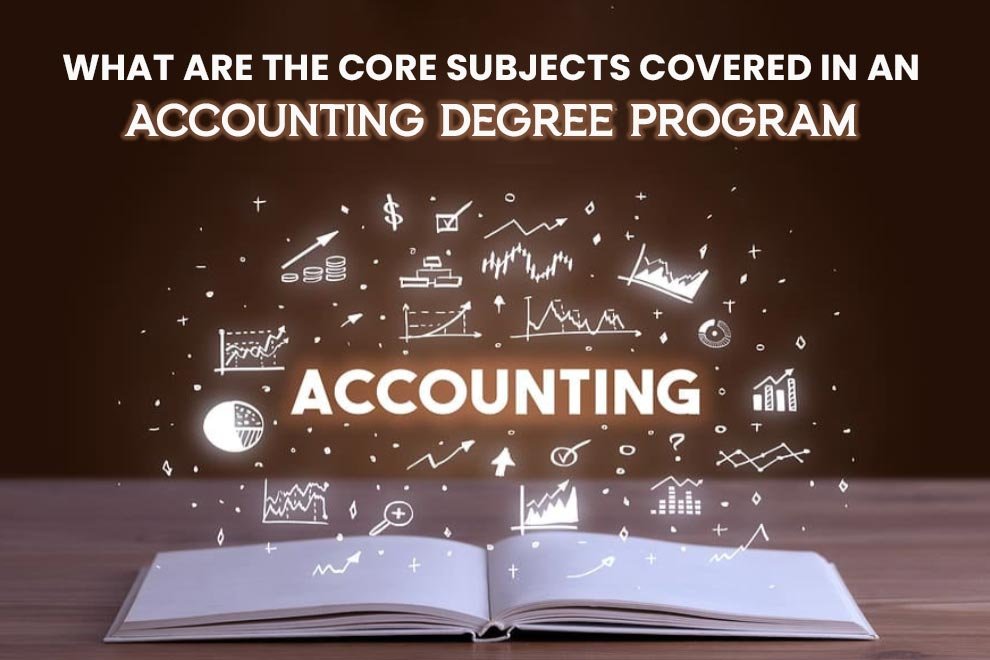Do you want to pursue a career in the world of finance? With the help of an accounting degree, you can unlock the doorway to diverse career opportunities.
From the course, you will not only gain knowledge theoretically but also it will help you dive deep into different case studies, real-world scenarios, and simulations, and help you understand the real-world scenarios to put your knowledge into practice.
In this article, let’s understand and explore the core subjects that are covered in an accounting degree programme and how they’ll help your accounting career.
How do the core subjects contribute to an accounting degree program?
An accounting degree curriculum on average covers a wide range of core fields necessary for understanding the notions and exercises of accounting. These core topics include:
- Financial accounting: This subject meets the principles and models used to record, classify, and condense financial transactions. Students discover how to make financial statements such as balance sheets, income reports, and cash flow declarations, and examine financial data for decision-making purposes.
- Managerial accounting: Managerial accounting deals with cost behaviour and analysis, budgeting, performance measurement, and decision-making methods using appropriate costing methods. Students discover how to use accounting information to support management decisions within a corporation.
- Taxation: Taxation covers grasping tax laws and regulations, figuring income taxes for folks and businesses, tax planning approaches, and ethical reflections in taxation methods. Students gain knowledge of the legal and ethical characteristics of taxation and discover how to steer complex tax procedures.
- Auditing: Auditing encompasses understanding auditing theories and practices, audit planning, records, internal control estimation, and reporting of audit findings. Students uncover how to evaluate the consistency and dependability of financial information and confirm compliance with governing constraints.
- Business law: Business law presents students with the legal context governing business transactions, contract law, commercial governance, execution, and ethical issues in business. Students gain an understanding of the legal rights and concerns of businesses and individuals in the business circumstances.
- Finance: Finance contains concepts such as the time value of money, capital budgeting, investment analysis, financial markets, risk management, and financial results. Students learn how to examine financial data, consider investment prospects, and succeed in financial risks effectively.
- Economics: Economics requires students with a comprehension of microeconomic and macroeconomic principles and their application to business decisions. Students learn about economic indicators, market behaviour, and the impact of economic factors on business operations.
Overall, an accounting degree course prepares students with a complete understanding of accounting principles, practices, and ethical standards, making them for a wide range of career prospects in accounting, finance, auditing, taxation, and business management.
So, what are you waiting for? Dive into the world of accounting and open endless opportunities for your future career. Whether you’re passionate about numbers or fascinated by financial management, an accounting degree is your ticket to success.
Ready to take the next step? Let’s kickstart your journey towards a rewarding career in accounting!
Also Read: McDaniel College: Conquering New Heights of Education in Finance and Accounting










